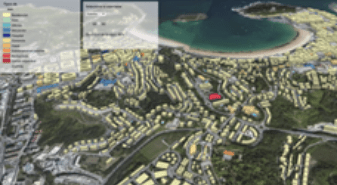Result description
Set of energy modelling approaches, tools and processes to create advanced long-term energy planning of the cities. The multi-methodological framework proposed, with a holistic, interdisciplinary and long-term approach, aims to assess the micro-level energy structure of the building stock and subsequently the long-term energy scenario. Besides, it considers business models and socio-economic impacts to create potential future scenarios using PESTEL and I-O methods.
Addressing target audiences and expressing needs
- To raise awareness and possibly influence policy
- Grants and Subsidies
This research on advanced energy planning for cities could benefit from the following policy support:
- Regulatory Frameworks: Align urban energy policies, update building codes, and improve data-sharing regulations to support energy modelling.
- Incentives for Adoption: Introduce financial incentives and funding for cities or businesses that implement the models or run pilot projects.
- Public-Private Partnerships: Encourage collaboration between government, businesses, and cities to create viable energy business models.
- Socio-Economic Policies: Support just transitions to ensure fair energy access and mitigate socio-economic impacts.
- Environmental Targets: Strengthen carbon reduction goals to align with energy planning tools and ensure broader sustainability.
- Public Awareness: Promote campaigns and education to increase understanding and skill-building in energy-efficient urban planning.
- Public or private funding institutions
- EU and Member State Policy-makers
- International Organisations (ex. OECD, FAO, UN, etc.)
Result submitted to Horizon Results Platform by FUNDACION TECNALIA RESEARCH & INNOVATION

